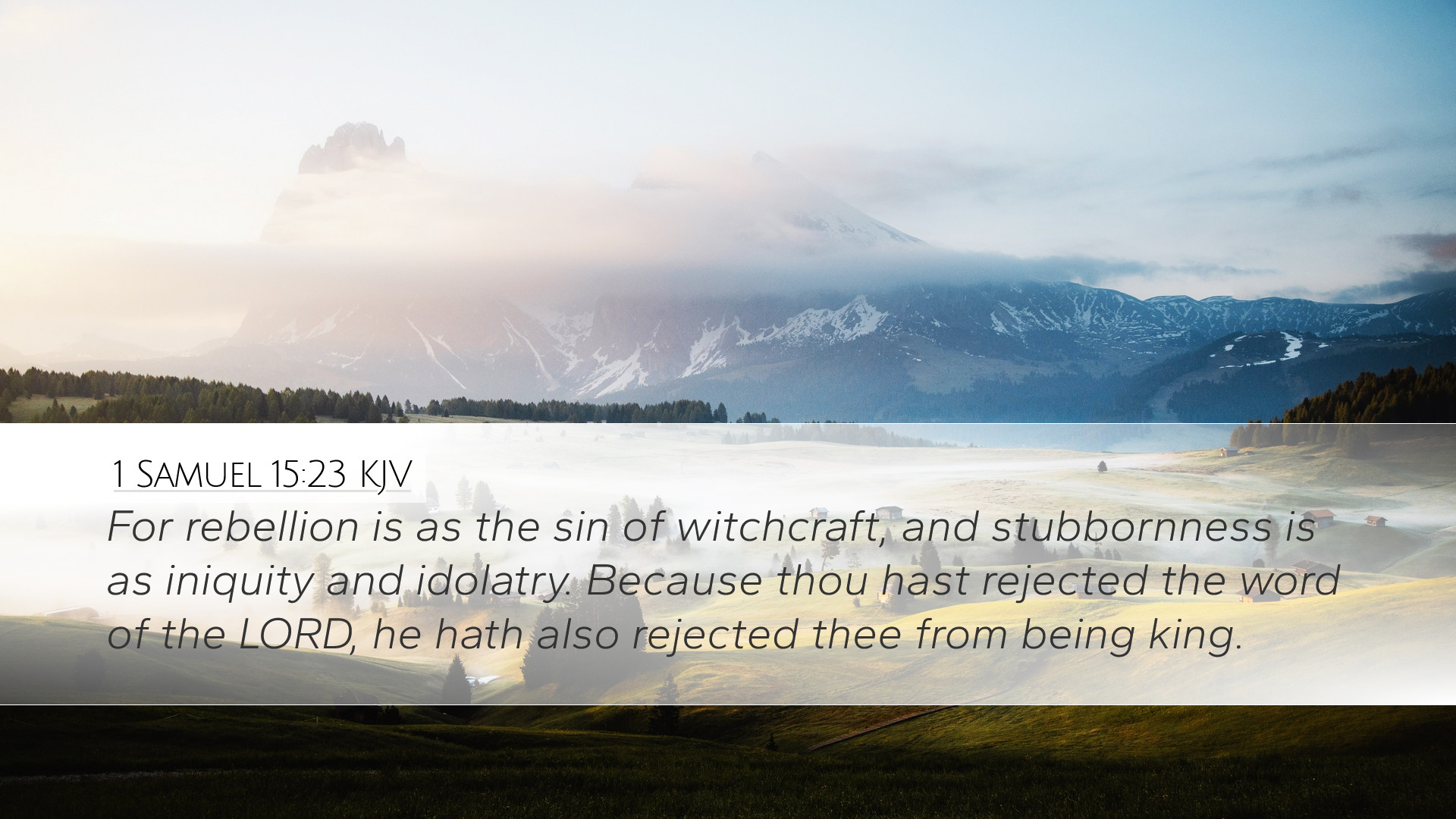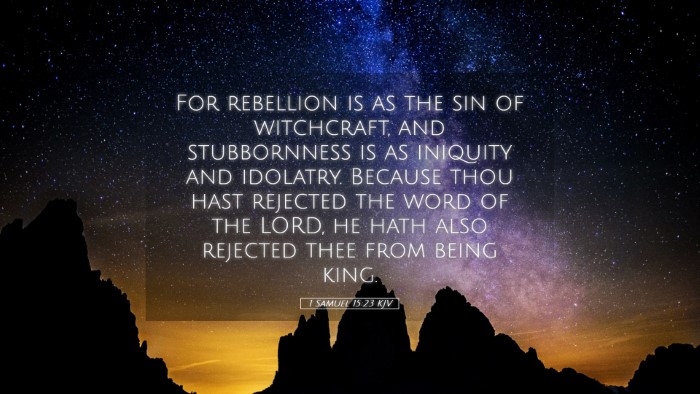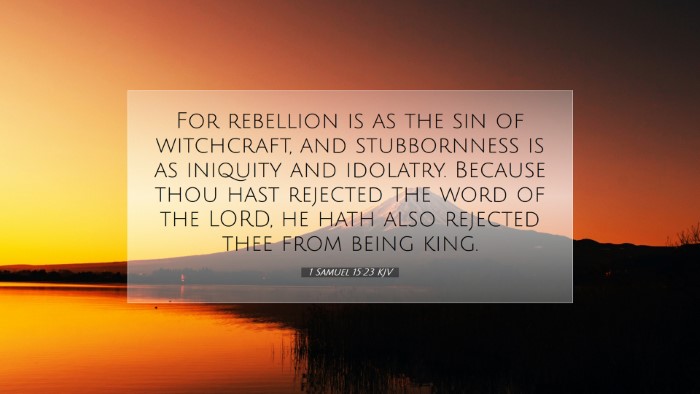Commentary on 1 Samuel 15:23
Verse: "For rebellion is as the sin of witchcraft, and stubbornness is as iniquity and idolatry. Because thou hast rejected the word of the LORD, he hath also rejected thee from being king."
Introduction
This profound verse from 1 Samuel encapsulates the serious consequences of disobedience to God. The context of this passage reflects a pivotal moment in Israel's history, where Saul's failure to adhere to God's command led not only to personal loss but also to a national crisis. This commentary synthesizes insights from notable public domain commentaries, highlighting the rich theological implications relevant for pastors, students, and scholars alike.
Contextual Analysis
The account in 1 Samuel 15 describes God’s command to Saul through the prophet Samuel to completely destroy the Amalekites. Saul's disobedience, manifested in his decision to spare Agag, the Amalekite king, and the best of the livestock, serves as a critical backdrop to the divine judgment articulated in verse 23. The rebellion as a theme runs deeply through this narrative, exposing the spiritual dangers of partial obedience and the heart's inclination toward self-justification.
Rebellion as Witchcraft
Matthew Henry elucidates that the term "rebellion" goes beyond mere insubordination; it symbolizes a heart turned away from God. To liken rebellion to witchcraft indicates not only the gravity of the sin but also the spiritual state that accompanies such defiance. In ancient Israel, witchcraft was detested and banned, often associated with a rejection of God's authority. According to Henry, by comparing rebellion to witchcraft, God emphasizes that any deviation from His commands opens the door to spiritual seduction and demonic influence.
Stubbornness and Idolatry
Albert Barnes interprets "stubbornness" as an unwillingness to submit to God's will, akin to idolatry. The heart that refuses to yield is setting itself up as an idol, valuing its own preferences over divine instruction. This highlights the seriousness with which God views not just overt acts of disobedience but also the inner disposition of the heart. Stubbornness, therefore, becomes an affront to God's sovereignty and a rejection of His rightful place in the life of His people.
Rejection of God's Word
Adam Clarke impresses upon the reader that the rejection of God's word is the ultimate cause of Saul's downfall. When God speaks, it is imperative to heed His voice without reservation. Clarke articulates that when one rejects divine instruction, they are effectively placing their understanding above God's wisdom. This leads to divine rejection; thus, Saul is told that God has rejected him as king. The divine verdict is not merely punitive; it reflects a broken relationship due to Saul's choices.
Theological Reflections
1 Samuel 15:23 is a stark reminder for contemporary believers of the seriousness with which God regards obedience. It raises essential questions about our responses to God's commandments:
- Obedience vs. Sacrifice: The verse underscores that God values obedience over ritual sacrifice, emphasizing that our actions must align with divine directives.
- Spiritual Vigilance: The parallel drawn between rebellion and witchcraft invites believers to examine what subtle forms of rebellion may exist in their lives.
- The Nature of God’s Authority: Acknowledging God’s authority entails recognizing the seriousness of disobedience. God’s holiness requires a genuine commitment to His word.
Pastoral Application
For pastors and leaders, 1 Samuel 15:23 serves as a clarion call to both personal and congregational integrity. In shepherding a flock, it is vital to preach the importance of obedience that stems from a heart aligned with God’s will. In moments of rebellion or spiritual stubbornness, congregants must be gently guided back to the truth of God’s word.
Conclusion
In conclusion, 1 Samuel 15:23 encapsulates critical lessons about the nature of God, the gravity of disobedience, and the profound implications of straying from divine instruction. The insights of Henry, Barnes, and Clarke converge to offer a robust understanding that remains applicable to the church today. As we navigate our faith, let us be ever mindful of the seriousness of our walk with God and strive to cultivate an obedient spirit.


